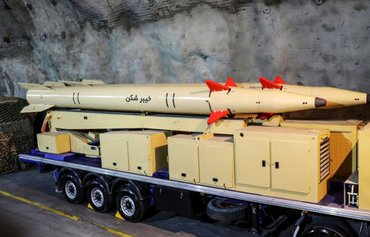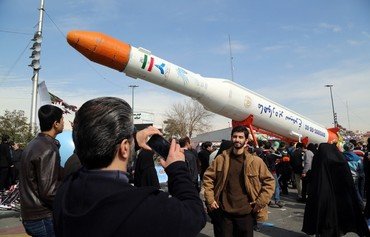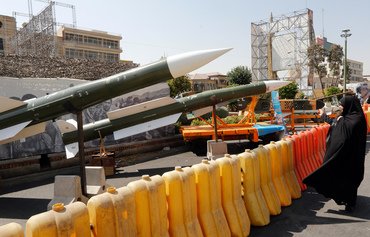Iran said it "successfully" launched a satellite Sunday (February 9th) but failed to put it into orbit, in a blow to its space programme that the US alleges is a cover for missile development.
The attempted launch of the Zafar ("Victory") comes days before the 41st anniversary of the Islamic Revolution and crucial parliamentary elections in Iran.
In 2018, the US issued new demands that Tehran curtail its development of ballistic missiles.
It also has raised concerns in the past about Iran's satellite programme, saying the launch of a carrier rocket in January 2019 amounted to a violation of limits on its ballistic missiles.
On Sunday, Iran launched the Zafar satellite at 7:15 p.m., but it fell short of reaching orbit, the defence ministry said.
A ministry spokesman said initially that the satellite was "successfully" launched and went "90% of the way", reaching an altitude of 540 kilometres.
"The Simorgh (rocket) successfully propelled the Zafar satellite into space," said Ahmad Hosseini of the ministry's space unit.
"Unfortunately, in the final moments the carrier did not reach the required speed" to put it into orbit, he told state television, pledging to continue efforts.
Telecommunications Minister Mohammad Javad Azari Jahromi admitted in an English-language social media post soon after that the launch had "failed".
France on Monday condemned the attempted launch, urging Tehran to abide by international obligations on its controversial ballistic missile programme.
"France condemns this launch which calls on technologies used for ballistic missiles and, in particular, intercontinental ballistic missiles," the French foreign ministry said in a statement.
"Iran's ballistic programme hurts regional stability and affects European security," the ministry added. "France calls on Iran to fully respect its international obligations in this matter."
'New generation'
Iran on Sunday also unveiled a new short-range ballistic missile and its "new generation" of engines designed to put satellites into space.
According to the Islamic Revolutionary Guard Corps (IRGC) website, the Raad-500 missile was equipped with new Zoheir engines made of composite materials that make them lighter than previous steel models.
Iran also unveiled Salman engines made of the same materials but with a "movable nozzle" for the delivery of satellites into space, allowing "manoeuverability beyond the atmosphere".
In January 2019, Tehran announced that its Payam ("Message") satellite had failed to reach orbit, after authorities said they launched it to collect data on the environment in Iran.
The US said the launch of the carrier rocket was a violation of a 2015 UN Security Council resolution endorsing the international accord on curbing Tehran's nuclear programme.
Resolution 2231 called on Iran to refrain from any activity related to ballistic missiles capable of delivering nuclear weapons.
Tehran confirmed in September that an explosion had taken place at one of its satellite launch pads due to a technical fault.
The country's on-off space programme unsettles some nations as the technology used in space-bound rockets can also be used in ballistic missiles.
Iran has successfully launched several satellites since February 2009.

![Iran's prototypes of four home-built satellites: Rasad, Amir Kabir-1, Zafar and Fajr, are on display during their unveiling ceremony in Tehran in this file photo from February 7th, 2011. [Vahid Reza Alaei/AFP]](/cnmi_am/images/2020/02/10/22378-Iran-satellite-prototypes-600_384.jpg)






